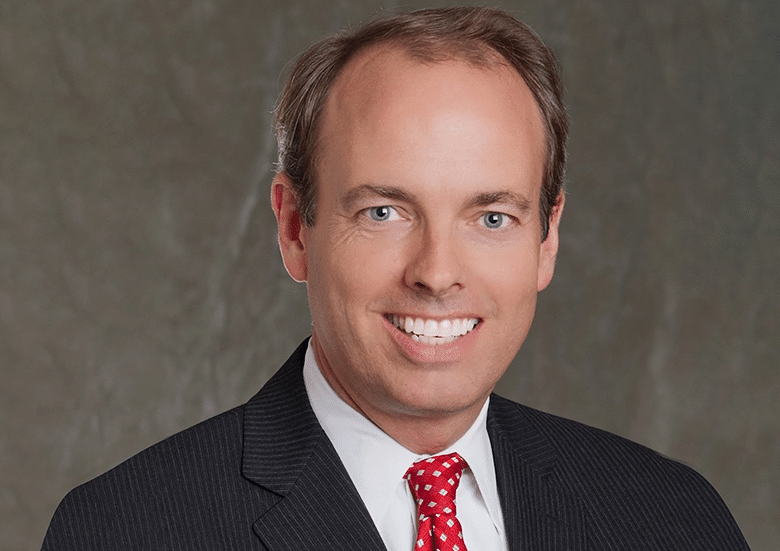Bob Broeksmit is president and CEO of the Mortgage Bankers Association (MBA). This column is edited and adapted from prepared remarks delivered today at the MBA’s 2024 Annual Convention and Expo in Denver.
While the rest of the country is anxious about the election, at MBA, we’re ready. We’ve spent months preparing for every outcome. And we’ve spent years deepening our partnerships with leaders in both parties.
Now, you’re probably thinking: Okay, Bob, but cut to the chase: Who do you actually think will win? Well, if I knew that, I wouldn’t be in Denver. I’d be in Vegas.
Honestly, the election could go a lot of different ways. Republicans could sweep everything. Democrats could sweep everything. But we think the most likely outcome is divided government. Regardless of who wins the White House, they’ll probably face at least one chamber of Congress controlled by the other party. In other words, we’re getting ready for two years of gridlock-at least.
Of course, now you’re probably thinking: What does divided government mean for my business? Well, when it comes to mortgage rates, not much.
The Federal Reserve is largely independent from the President and Congress. The Fed reads economic signs, not election results. So, the Fed will take its own counsel, and we believe it will keep cutting rates. But compared to previous rate-cutting cycles, this one will probably be shorter and less steep.
Our best estimate is that 30-year rates will hover between 6% and 6.5% for the rest of this year, then settle in the high 5s by the end of next year. We’re looking at a different story, though, when it comes to federal policies.
Gridlock means that legislation will be hard to pass, so the next president will rely heavily on regulation. Whoever that is, they’ll have their leaders in place at the CFPB and FHFA, because the Supreme Court has now fully placed them under White House control.
Both agencies will keep pumping out new rules. So will other agencies that cover housing and lending. Yet while the stream of regulation will continue, the kind of regulation depends on who wins. Donald Trump and Kamala Harris have very different governing philosophies.
But I want to reassure you that in either case, MBA has a game plan. We know how to stop bad ideas, or at least make them better. And we’re always ready to push for good policies that enable you to do more for Americans.
You may be wondering: How is Bob so confident? The answer is simple. I know MBA will deliver for you next year… because we’ve delivered for you this year. We’re already living in an era of gridlock and regulation. Time and again over the past 12 months, we proved that we have the relationships that get results. The latest proof came just over a month ago, when FHFA abandoned its original Suspended Counterparty rule.
When the proposal came down last year, hardly anyone was paying attention. But the MBA paid close attention, and we immediately saw the danger it posed. That rule would have banned companies that make minor mistakes from working with Fannie and Freddie.
It wasn’t just over-regulation. It was an overreaction. And we refused to let it stand. We launched and led a national coalition to stop that proposal in its tracks. At the same time, we leveraged our many relationships in Congress, the White House, and FHFA itself. They listened to our concerns, and as a result, they’ve proposed a new rule that’s dramatically better. Immediate suspension orders are off the table. Your due process rights are more secure. And minor violations will no longer be subject to major punishment.
You shouldn’t have to worry about the Suspended Counterparty Rule anymore! For that matter, you don’t have to worry about the even bigger threat of the Basel endgame proposal. MBA helped kill that, too – and not a moment too soon. We all know that Basel III was a disaster in the making. It would have seriously injured low-to-moderate-income lending by raising risk weights on specific kinds of mortgages, particularly low own payment loans.
That increase in required capital would inevitably mean fewer loans would be made, and the loans that are made would be more expensive. The treatment of mortgage servicing rights would have compounded the problem, driving up costs for every borrower.
And Basel III also would’ve raised capital requirements on warehouse lending, reducing the liquidity available to independent mortgage banks that do the majority of lending to low- and moderate-income and first-time homebuyers. But under Basel III, they wouldn’t have been able to do as much for so many people.
We made these facts clear at the highest levels of government. We testified to Congress. We met with the Fed, the FDIC, and the White House. And we told them in no uncertain terms that Basel III would destabilize the housing finance market. Once again, our voice made a difference.
The Fed, OCC, and FDIC now all now appear to agree that the Basel III proposal is unworkable, and they’re going back to the drawing board. We’ll keep fighting to ensure that whatever they do protects you and your customers.
Our work on Suspended Counterparty and Basel III proves that we know how to influence regulation when it matters most. But I also want to point out that we know how to get legislation across the finish line – even in the era of gridlock.
I know it, because at this very moment, we’re on the verge of a major victory. Congress is right now in the midst of considering our suggested reforms on trigger leads. As we all know, Americans shouldn’t be bombarded by a thousand-and-one spam calls when they try to get a home loan.
At most, they should be contacted by the handful of legitimate companies they already know. MBA worked with our allies on Capitol Hill to design a bill around this insight — the Homebuyer Privacy Protection Act. And the response in Congress has been overwhelming.
If I asked you what Republican Senator Tommy Tuberville of Alabama and Democratic Senator Elizabeth Warren of Massachusetts have in common, you’d probably say – absolutely nothing. Or maybe that they both have vowels in their last names.
But in fact, they’ve both co-sponsored our legislation. So have 123 other lawmakers on both sides of the aisle. The Senate has now included our preferred bill in its defense authorization package. That defense measure has to pass before the end of the year, and we remain in the fight as discussions on our piece of the final product continue behind closed doors.
Homebuyers stand a good chance of finally being saved from abusive trigger leads. And it proves that not even gridlock can stop the MBA!
There are many more victories I could name. But I’d like to spend a few moments discussing the opportunities we see next year – no matter who wins the election next week.
For all their differences, both Donald Trump and Kamala Harris will focus on housing. Both of them have said we need to get prices under control. They’re also clearly aware that we need more affordable units for purchase and rent.
Of course, Republicans and Democrats will tackle these challenges in their own way. Regardless, we’ll be ready to support good policies from either president and both parties.
We’re also ready to shape the debate over taxes. Most of the 2017 tax cut law will expire at the end of next year, including many of the provisions that help you and your customers.
As the tax debate ramps up, we’ll keep telling lawmakers that Americans need to keep more of their take-home pay. If we truly want to help more Americans find affordable housing, the last thing we should do is raise their taxes.
There’s one more opportunity I want to highlight. Over the past few years, many of you have rightly told us that federal housing policy is not only getting more burdensome, it’s also increasingly contradictory. Consider just one example. On the one hand, we’re told that affordable housing is a major goal, but on the other hand, we get the Basel proposal that would limit lending to low- and moderate-income Americans.
Someone has to bring order to this mess. That’s why MBA is strongly calling for the creation of a National Housing Director.
Under our proposal, a Housing Director would focus solely on housing and oversee every housing policy, no matter which agency it comes from, and spot contradictory rules from a mile away.
Ultimately, the Housing Director would stop agencies from stifling us and start the long overdue process of empowering us to help even more Americans. This is the kind of thought leadership that we bring to bear in our nation’s capital. And we’ll continue to push for good ideas to become realities.
Whatever the issue, we’re already communicating with both presidential campaigns. In fact, this summer, MBA had a strong presence at both parties’ conventions. We’re also talking with the key personnel who will either staff or shape federal agencies. And of course, we continue to work closely with both parties in Congress.
















